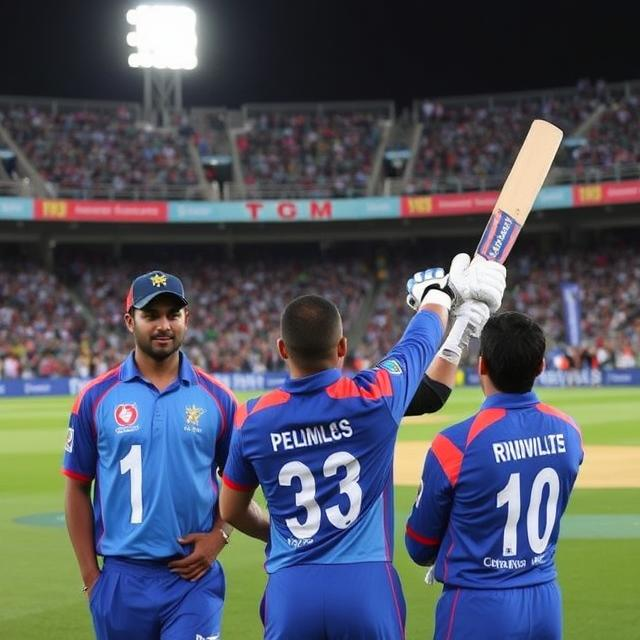Pakistan’s 1996 World Cup Captain: A Look at Imran Khan’s Legacy
Pakistan’s 1996 World Cup Captain: A Look at Imran Khan’s Legacy

The 1996 Cricket World Cup, held in the subcontinent, held immense significance for Pakistan. Leading the team was a figure synonymous with Pakistani cricket – Imran Khan. This article takes a closer look at his captaincy during that tournament and its impact on Pakistan’s cricketing journey.
A Glimpse into Imran Khan’s Leadership Style
Imran Khan, a legendary cricketer himself, brought a unique approach to leading the Pakistan team in 1996. His leadership style was largely characterized by a blend of inspirational speeches, strategic acumen, and unwavering determination, often pushing the team to perform beyond its perceived limitations. He fostered a team spirit, motivating players to give their best and encouraging a strong sense of unity. He also meticulously studied opposing teams, their strengths, and weaknesses, creating well-thought-out game plans. Beyond cricket, his influence extended to fostering a sense of national pride amongst the team, reminding them of their responsibility to perform for the nation.
The 1996 World Cup: A Mixed Bag for Pakistan
The 1996 World Cup presented Pakistan with a mixture of triumphs and setbacks. While the team displayed moments of brilliance, they faced some significant challenges. One key aspect was the team’s inconsistent performance across matches. Some matches saw extraordinary displays of batting prowess and spectacular bowling performances, while others showcased a vulnerability that ultimately hampered their progress.
Imran Khan, despite the team’s inconsistency, remained steadfast in his approach to leadership and team morale. His dedication to inspiring his players and fostering a positive environment contributed to their ability to fight back even in seemingly insurmountable situations.
Key Players and Their Contributions
The 1996 Pakistan team boasted a strong ensemble of talented players. Looking at the likes of Wasim Akram, a potent force in the bowling attack, Inzamam-ul-Haq and Saeed Anwar, formidable batsmen, and others, a clear picture emerges of the team’s potential and its challenges.
While Wasim Akram consistently delivered with his pace and swing, the team sometimes lacked a consistent batting approach. Inzamam-ul-Haq’s contributions, while often crucial, were not consistently impactful, highlighting the need for a more balanced approach to team play.
Turning Points in the Tournament
Throughout the tournament, certain matches became pivotal for Pakistan. Some victories brought them closer to qualifying for the later stages, while others were crucial losses that impacted their momentum.
A closer look at these matches reveals the fluctuations in performance. Analyzing the strategy implemented by Imran Khan before those matches and evaluating the post-match discussions among the players provide insights into the challenges the team faced and the leadership approaches employed.
Impact on Subsequent Teams
Imran Khan’s captaincy in 1996, although not resulting in a World Cup win, left an undeniable mark on Pakistani cricket. His leadership style and emphasis on team unity played a crucial role in shaping the expectations of future generations of Pakistani players. The 1996 World Cup experience became a valuable learning process, which served as a blueprint for future strategies and team dynamics.
The team’s performance in 1996 had both positive and negative impacts. It inspired future players but also exposed vulnerabilities in their approach to the game, which later teams attempted to address in subsequent tournaments.
The Legacy of Imran Khan’s Captaincy
Imran Khan’s legacy as a captain, extending far beyond the 1996 World Cup, is intrinsically tied to his cricketing achievements. Beyond the sporting arena, his leadership has inspired countless people worldwide. His focus on team unity, despite the occasional setbacks, played a vital role in shaping Pakistani cricket’s trajectory and motivating future generations.
Ultimately, the 1996 World Cup offered a platform for Imran Khan to showcase his leadership skills and tactical acumen. While the team’s performance was not always consistent, the tournament marked a significant chapter in Pakistan’s cricketing history, influenced by the captain’s unwavering commitment to the team.
Analyzing Imran Khan’s Style vs. Other Captains
Comparing Imran Khan’s leadership style with those of other captains during that period reveals unique insights. His motivational strategies differed, and his approach to managing individual players’ performances may have varied from those employed by other captains. A comparative study could offer valuable insights into effective leadership in cricket.
Analyzing his decision-making, particularly during crucial moments of matches, reveals the nuances of his leadership style and how it influenced the players under him. Looking at the differences in strategy between Imran Khan and other captains of that era sheds light on different approaches to winning and fostering team cohesion.
Conclusion
The 1996 Cricket World Cup, while not a triumph for Pakistan, remains a notable chapter in the history of the team, underscored by Imran Khan’s leadership. His efforts at building a united and confident team resonate beyond the specifics of that tournament, leaving a lasting imprint on Pakistani cricket. Analyzing his captaincy allows us to appreciate the unique blend of motivational leadership and strategic insight that shaped his approach.
The experiences, both victories and setbacks, of the 1996 team would undoubtedly influence the way future Pakistani captains would approach international tournaments. This insight makes the study of this World Cup and Imran Khan’s leadership pivotal in understanding the evolution of Pakistan’s cricketing journey.
Further Research
Further research could examine the impact of Imran Khan’s captaincy on team dynamics and individual player performance. A comparative study between his leadership style and that of other captains from the era could provide additional context.
Articles and interviews with players from the 1996 team would offer valuable firsthand accounts of the events and the leadership style employed by Imran Khan. Such explorations would add richness and depth to understanding the significance of this pivotal period in Pakistani cricket’s history.
This article presents a focused look at Imran Khan’s captaincy during a critical period in Pakistan’s cricketing history, highlighting the elements of his leadership style, the team’s performance, and the legacy he left behind.